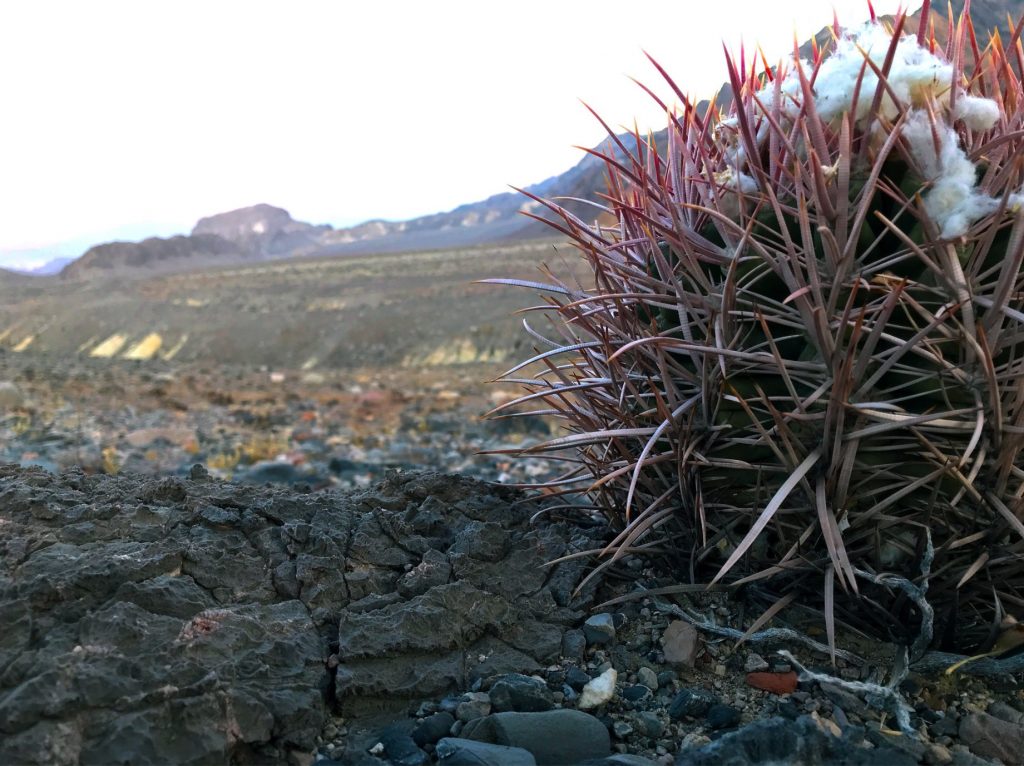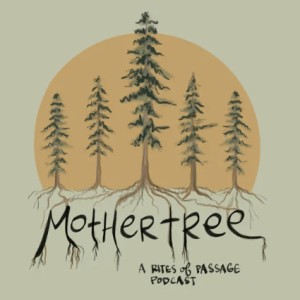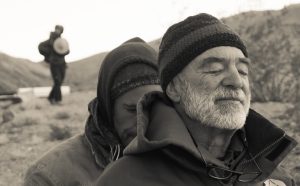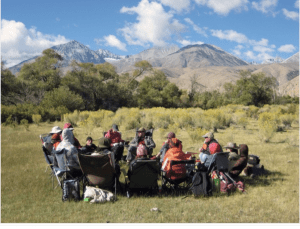
Learning to live
It is my third day without food.
In the night I awaken now and again, cozy in my warm sleeping bag, and watch the Big Dipper move around the north star. At the early light of dawn over barren rock hills, I bid farewell to a waning moon as it dips behind the ridge far across the desert valley to the west.
Now in the full light of morning, I brush my hair and then my teeth. The lack of food has left me weak but also clear. I am aware of tiny spiders and their nearly invisible threads and of the slow movement of shadows. Everything has become simply what it is. My usual planning and ideas and thinking are silent as rocks.
Eventually I will have to choose a spot nearby and prepare a place for myself where I will spend the night keeping vigil. But that is hours away. I clean and file my fingernails. Then wash my face with a tiny bit of water from the third and next-to-last gallon jug I have left. Then some shea butter on my face—oh that feels good in this dry, dry air! I blow my nose thoroughlly. Move different body parts in slow circles. Sit on my tarp and meditate. Two hours gone. Ten and a half to go before dark.
On the first day of my four-day solo fast, I felt happy when I arrived at my chosen site—a lone, medium-sized boulder of hard, sharp, reddish conglomerate that sat north over a rise, not far from the group base camp. The joyous welcome of this harsh desert moonscape in Death Valley was palpable. Ready for time alone after several intense days with my fellow fasters and our guides, I set up my minimal camp on the shady side of the boulder.
This was the fourth time in a ten-year span that I had fasted in the wilderness, participating in an ancient rite-of-passage ceremony that has been revived now for modern people. The other eight fasters as well as two guides and three assistants were a short walk away, but I saw no sign of anyone. That first day I had food energy in me still. Silence and the expanse of time lay before me. Throughout the day I moved around the boulder, following the shade. I gloried in my aliveness, the sweet smell of my own skin, my precious health.
In the evening of that first day, I decided to walk up the ridge and watch the sun set. I walked slowly and arrived in good time. As the sun dropped low in the west, I picked up two fist-sized quartzite rocks and, like some ancient ceremonialist, clacked them together to drum the sun down.
As the light turned golden, I felt something behind me. I turned and saw the shadow of the ridge I was standing on cast on the rocky hill to the east. I squinted. Was that MY shadow, that faint bump? I opened my arms above my head, stuck a leg out sideways … and the bump moved with me. I waved my arms over my head; the shadow waved faintly back. Then directly above my small bump shadow I noticed a large outcropping of rock set into the hill. In the fading light of day, I saw a big eye-socket hole, a rocky nose bridge, and a cave for a mouth—a perfect human skull, looking sideways out over the valley.
Now, by evening on this third day, I am ready. I’ve chosen a spot with a good view of the west, and I prepare my space slowly, as by now I can only move with care, as I have little energy. I make a circle of rocks, each representing someone important in my life. I am to stay awake the night inside this circle, holding vigil for myself. At some point, they told us, I would die, to be reborn at the dawn of the fourth day.
I feel safe, out under the now-familiar stars, in a circle of loved ones—family, mentors, ancestors. I lie in my sleeping bag, watching the night, my head covered against the constant desert wind as the hours creep by.
The memory of my shadow was with me. My shadow death that danced with me on the far ridge as I moved. I smile and feel a great affection well up in my heart. Then, in the early morning hours before dawn, I have a visceral experience of dying. It’s hard to explain. I stand over my future self, and I care for her, unwinding her energy centers with tender love as I sing in the dark to the wind and the stars. There is a clear, distinct moment when I feel something sluff off. I know she has passed. I had passed. It was over. And then I sleep until the first early glimmerings of dawn.
——
In early December of 2014, my father died. He was 85. It was the first time I’d experienced death so up close, and its surreal, sad gentleness surprised me. I’d thought plenty about the idea of “Death.” I understood that being fully present was important—both for myself and for the one dying. But this experience was real. I was in the process, watching it firsthand. It changed things.
During the summer months before he passed, we moved him to the family ranch in the once-stately old Tudor home of his childhood, next door to my sister and her young family.
A brilliant man, with a mechanical mind that gloried in solving problems, in many ways my father exemplified the age of mechanization that was ever striving for a better, more efficient way of doing things. I could always count on him to help me fix anything that was broken. Anything material, that is.
He was also, in his unique, unassuming manner, a maverick. He liked going against the grain, doing things the wacky way, not conforming—in the true spirit of the radical Mormon pioneer culture into which he was born.
In the last five to seven years of his life, he slowly lost his mind to some kind of dementia. He also went from being someone who had a tendency to obsess, worry, and ever yearn toward some ideal imagined future, to someone who was only there right in that exact moment, who was often funny, and fundamentally sweet and grateful. It was as if his true nature was revealed as the layers of conditioned mind patterns were stripped away.
In mid-November, he began coughing up blood. Lots of blood. My sister drove him back to the city, to the hospital. As a family, we made the choice to not prolong his life. It was not his way. My youngest sister took him into her home after a two-night emergency stay in the hospital. He lay in the hospice bed in a spare bedroom, each day seeming to be further away. Once I stroked his hair and sang to him. He’d been non-responsive for a couple of days, but now he made noises, singing with me. It mended much in my heart.
Nine days after he’d been driven down from the ranch, he drew his last breath, sometime between 6:30 and 8:45 in the evening. He went quietly and alone, as was his wish.
Up at the ranch, my sister was out on her balcony after a day of deep cleaning next door at the old Tudor-style house, Led Zeppelin turned up full blast on my father’s expensive high fidelity stereo system. In the cold clear darkness of that December night, she felt something coming from the direction of the old house. Relating the story to me the next morning, she said that it felt like a great joy, a release, an energy of freedom …
We’d decided to dress his body for burial ourselves. He was to be laid to rest in a cemetery close to the ranch. We drove up on a clear and unseasonably warm early December day, his body in a simple fifty-dollar wooden casket placed on my brother’s trailer, camouflaged by bags of leaves.
To handle the once-ensouled flesh of a person who has been around all your life and such a huge influence on your very existence but now is like—dare I say—chicken from the store, is strange; yet it was healing as well. I also was perfectly aware that someday this would be me.
The slow, three-mile caravan to the cemetery revealed dramatic late-afternoon December skies. The intimate, utterly impromptu and authentic graveside ceremony was beautiful. And when the backhoe roared to life and began dumping great loads of dirt to fill in the grave, we all hung out, chatting and watching. Spontaneously, my sister-in-law asked to borrow the grave-digger’s shovel and stepped right in to smooth out dirt. The kids and soon other adults merrily followed suit.
My father would have loved that burial. It was a do-it-yourself job. After his burial, I wondered to my sister that I was not feeling deep grief. I cried plenty, but there was a joy and sweetness to all my tears. She retorted that he didn’t leave a gaping hole in my life. It was true. I know he loved me dearly, but like many men of his generation, he didn’t know how to express it in words … and I didn’t know how to listen in other ways back then. Yet the very real process of my father’s death was one of the most far-reaching experiences I’ve ever had, one that brought our family close as we turned toward it with loving care to hold him as he went through it.
—-
By Kinde Nebeker, shared with permission of the author.
Share This
Related posts




